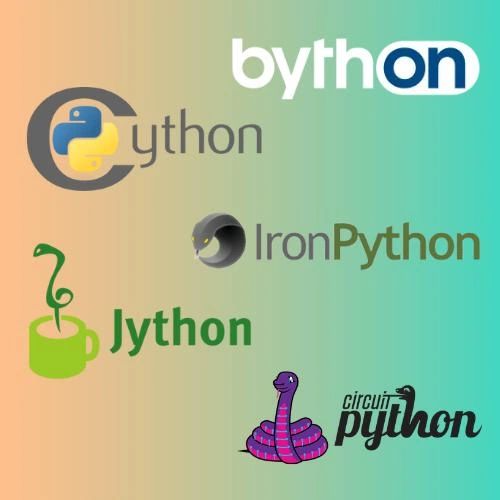Exploring Python's Diverse Ecosystem: Bython, Cython, Jython, IronPython, and CircuitPython
Python’s versatility and ease of use have made it one of the most popular programming languages. But did you know there are different variants of Python tailored for specific needs? Let’s dive into five intriguing versions:
1. Bython 🖋️
Bython aims to enhance Python’s readability by adopting features from languages like Ruby and CoffeeScript. It’s perfect for those who love Python’s capabilities but seek a more concise and user-friendly syntax.
Key Features:
- Enhanced readability and conciseness
- Compatible with existing Python code
- Ideal for users who prefer a different syntax style
2. Cython 🚀
Cython is designed to bridge the gap between Python and C, offering C-like performance while retaining Python’s ease of use. It’s widely used in performance-critical applications, such as scientific computing and machine learning.
Key Features:
- Significant performance improvements
- Allows integration with C/C++ code
- Retains much of Python’s syntax with additional C data types
3. Jython ☕
Jython is a version of Python that runs on the Java platform. It allows seamless integration with Java libraries and applications, making it a great choice for developers working in Java environments.
Key Features:
- Runs on the Java Virtual Machine (JVM)
- Full access to Java libraries and frameworks
- Ideal for Java-centric development environments
4. IronPython 🔧
IronPython is an implementation of Python running on the .NET framework. It enables Python developers to tap into the rich ecosystem of .NET libraries and tools, facilitating integration with C# and other .NET languages.
Key Features:
- Runs on the .NET framework
- Access to .NET libraries and tools
- Perfect for .NET-based development
5. CircuitPython 🔌
CircuitPython is a version of Python designed specifically for microcontrollers. It simplifies the process of programming small, resource-constrained devices, making it a favorite for hobbyists and professionals in the embedded systems and IoT space.
Key Features:
- Optimized for microcontrollers
- Easy-to-use and beginner-friendly
- Supports a wide range of hardware platforms
- Ideal for embedded systems and IoT projects
Why Explore These Variants?
Each of these Python variants offers unique advantages tailored to specific use cases:
- Bython for improved readability and syntax
- Cython for performance optimization
- Jython for Java integration
- IronPython for .NET compatibility
- CircuitPython for embedded systems and IoT
Your Turn!
Have you tried any of these Python variants? Which one intrigues you the most? Share your thoughts and experiences in the comments below. Let’s get a discussion going!
Happy coding! 💻✨
